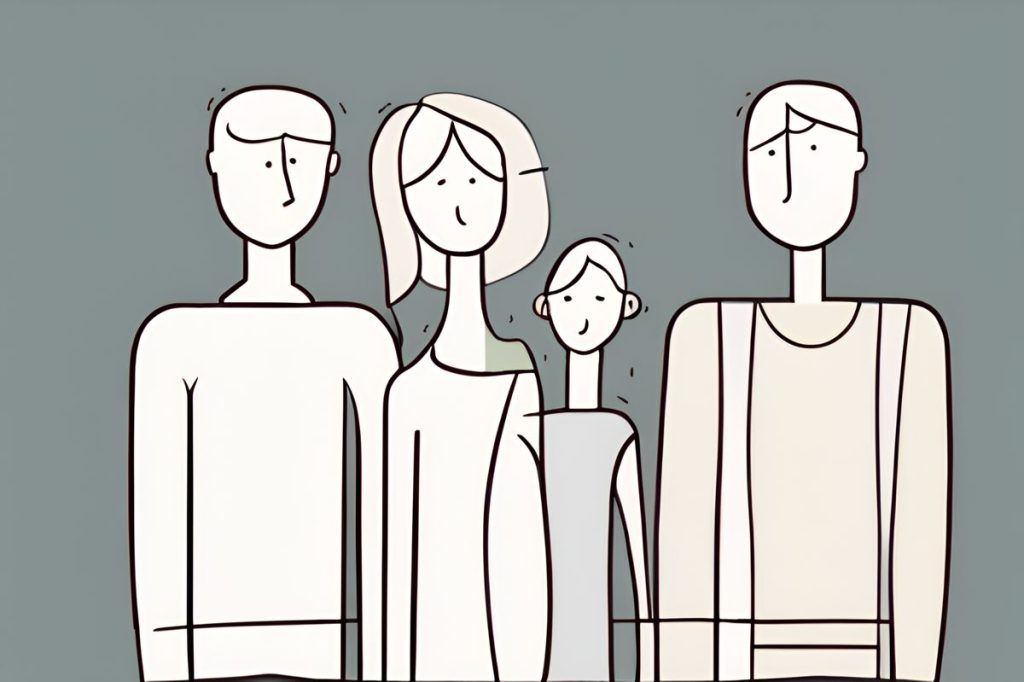In Cyprus, family forms the cornerstone of society, with strong familial ties providing a crucial support system in a culture marked by historical challenges. Trust in non-relatives and public institutions remains low, pushing Cypriots towards reliance on family networks for legal, medical, and financial support, celebrated through frequent gatherings and traditions.
What is the role of family in Cypriot society?
Family in Cypriot society is a central pillar of daily life, deeply rooted in the island’s history of strife and resilience. The strong family bonds form the primary social support system due to:
- High frequency of family interactions, leading Europe in family engagement
- Mistrust towards non-relatives and public institutions
- Family networks providing legal, medical, and financial support
- Communal bonds celebrated through frequent family gatherings and traditions
Cyprus, an island of enduring strife and beauty, stands testament to the resilience of its people. Over centuries, it has faced numerous occupations and modern financial crises, shaping a culture where trust is a commodity as precious as it is scarce. Here, familial ties bind not just hearts but also form the backbone of social trust and support systems.
The Centrality of Family
Families in Cyprus are not just close-knit units but crucial pillars of daily life. This is not without reason; the island’s turbulent history has instilled a strong sense of reliance within one’s own bloodline. An EU study highlighted the profound familial interconnectivity among Cypriots, revealing that most engage with their kin daily, making Cyprus the leader in Europe for family interaction.
This closeness transcends geographic boundaries. While the Cypriot diaspora has spread across the globe, the ties remain unbroken. In countries with significant Cypriot populations, such as the United Kingdom, Australia, and South Africa, these networks of relatives provide a semblance of the communal life back on the island.
Trust Issues Beyond the Family
The reliance on family can also be seen as a reflection of the mistrust Cypriots harbor towards non-relatives. The European Social Survey paints a picture of this trust deficit, with a mere 1.6% of Cypriots believing in the trustworthiness of others. These figures suggest a national temperament that leans towards skepticism, particularly in the fairness and intentions of those outside the family circle.
This skepticism isn’t baseless. Cyprus has experienced its fair share of challenges, from historical invasions to the 2013 financial crisis that devastated the economy. These collective experiences have left a mark on the national psyche, with trust in public institutions like the police and the legal system remaining low.
A Network of Support
Despite—or perhaps because of—these challenges, Cypriots maintain a resilient and resourceful community. Family members often assume roles typically reserved for public services or professionals. Legal advice, medical care, and financial guidance are frequently sought within the family, ensuring that sensitive matters stay among those with a vested personal interest.
Despina Nikolaou’s story is emblematic of the Cypriot spirit. During the 1974 Turkish invasion of Cyprus, her family found refuge and support among their relatives in the United Kingdom. Her uncles provided not just employment but sustenance and shelter, reinforcing the idea that for Cypriots, the extended family is the ultimate safety net.
The Comfort in Tradition
The robust family tradition in Cyprus fosters a unique lifestyle where communal bonds are paramount. Marina Panayiotou, a private English teacher from Nicosia, describes a life bustling with family engagements—a testament to the island’s social fabric. These gatherings, while sometimes exhausting, are a source of joy and security.
Celebrations and life events such as Easter, Christmas, weddings, and memorials constantly bring families together, reinforcing the bonds and trust that have become essential to Cypriot society. The garden parties, the endless cups of coffee, and the unannounced drop-ins from relatives are not mere social calls but the threads weaving the tight tapestry of Cypriot familial trust.
In summary, the Cypriot reliance on family is a complex interplay between historical circumstances and cultural identity. While the rest of the world may not fully grasp the depth of this trust, it is clear that for Cypriots, family is not just an important aspect of life—it is life itself.
What is the role of family in Cypriot society?
Family in Cypriot society is a central pillar of daily life, deeply rooted in the island’s history of strife and resilience. The strong family bonds form the primary social support system due to:
– High frequency of family interactions, leading Europe in family engagement
– Mistrust towards non-relatives and public institutions
– Family networks providing legal, medical, and financial support
– Communal bonds celebrated through frequent family gatherings and traditions
Why do Cypriots rely heavily on family networks for support?
Cypriots rely heavily on family networks for support due to a general mistrust towards non-relatives and public institutions. Historical challenges, such as occupations and financial crises, have shaped a culture where trust in others outside the family circle remains low. As a result, family members often assume roles typically reserved for public services or professionals, providing legal, medical, and financial guidance within the familial unit.
How has historical strife influenced the trust dynamics in Cyprus?
Historical strife in Cyprus, including occupations and financial crises, has significantly influenced the trust dynamics in the country. These collective experiences have led to a national temperament that leans towards skepticism, particularly in the fairness and intentions of those outside the family circle. Trust in public institutions like the police and the legal system remains low, further reinforcing the reliance on family for support.
What are some common traditions and celebrations that reinforce familial bonds in Cyprus?
In Cyprus, common traditions and celebrations such as Easter, Christmas, weddings, and memorials play a significant role in reinforcing familial bonds. These events bring families together, creating opportunities for shared experiences and strengthening the trust and connections within the family unit. Additionally, daily gatherings, garden parties, and coffee sessions are integral parts of Cypriot life, fostering a sense of community and mutual support among relatives.

